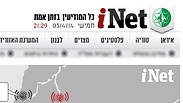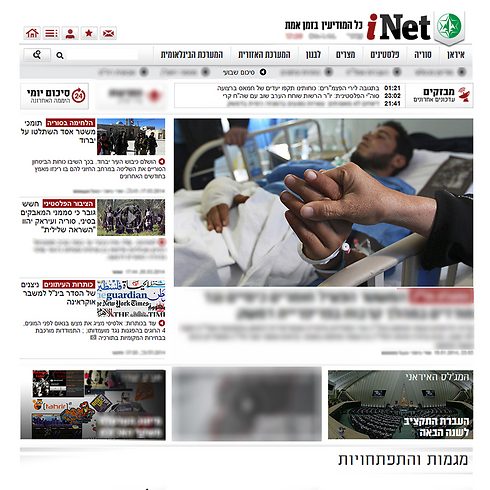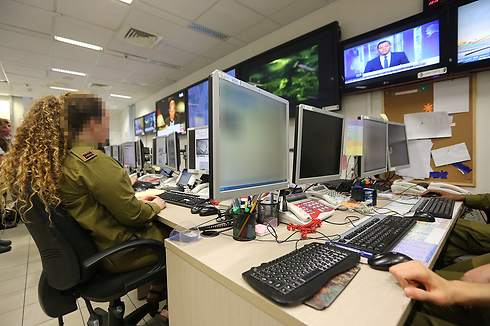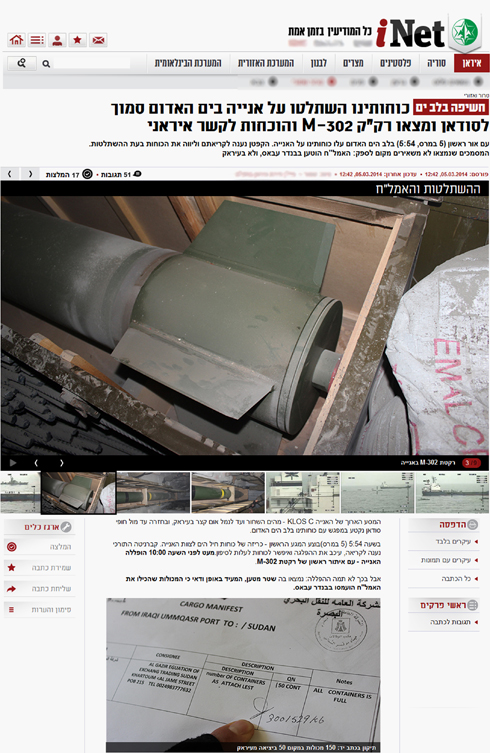
Inside iNet - IDF's secret news website
Military Intelligence run website 'iNet' provides high clearance level Israeli officials with classified updates and forum of discussion.
Civilian news organizations do their best at keeping the public updated on critical events around the globe, but some people need a source of news that's updated with secret information that no civilian publication could get their hands on. So where do Prime Ministers and other defense personnel get their news?
Meet iNet, the IDF's secret news website, constantly updated with information critical for the commanders of Israel's security forces and government policies.
The site is inaccessible to all but a few thousand with jobs that give them clearance to view the country's most important intelligence secrets. Visitors to the site include the Prime Minister and the Defense Minister as well as the Chief of Staff and his deputies.
Related stories:
- Intelligence briefing: Israel's military experts open up
- Hebron terror victim was 'genius in field of intelligence'
iNet has all the tools officials need to recieve urgent updates including a map covering the entire country that gives instant alerts when an attack takes place and a ticker tape filled with instant updates.
Officials also have the ability to use the site in a more analytic way to view intelligence reports and concise, easy to read articles, all within an attractive layout and efficient interface.
These articles even include in depth reviews and pieces of analysis followed by columns of comments by intelligent officials making iNet not only a source of information, but a place for State secrets to be debated and discussed.
Inspiration for the site came partly from Israeli news websites, but mostly from US Deputy Director of National Intelligence Robert Cardillo who utilizes his iPad every morning to update president Barack Obama on the biggest National Security secrets.
Some of the video and images used on the site are taken from online radar cameras around the country as well as from various class 9900 satellites and classified IDF observations.
Two weeks before Operation Full Disclosure when Israeli Navy forces siezed the KLOS C ship transporting weapons, iNet users were able to enter the website and recieve live updates on the location of Navy ships as well as KLOS C.
"We get information online from different regions and sources - Iran, the Palestinian Authority (PA), Syria, Lebanon etc.," said the Chief Editor of iNet. "Then we try to prioritize what's interesting and what's not, what will recieve a main headline and for how long."
The Chief Editor served as an officer in Intelligence and worked as an editor at a civilian news desk before returning to the military to work on iNet.
"In contrast to civilian news sites, we aren't trying to achieve any number of visitors. A main headline with 10 views can stay up for a whole day," he said. "On the other hand there were many cases in which we changed the main headline nine times in a shift because of developing events.
Editors at iNet also enjoy the perk of freedom of press unparalleled in civilian life. "Since we've been online it's only happened once that a senior Intelligence officer asked us to change a headline," said the Chief Editor. "But we've already recieved several calls from officers in the department who wanted to compliment our junior editors."
Linor, an editor at the iNet news desk noted that comments go online without any censorship, "in order to encourage pluralism. Instead of 'likes' on articles we have 'recommend'. Opinion columns actually get the most comments and their topics range from where the break-down in peace talks could lead us, to the age after Khamenei if that ever arrives."













